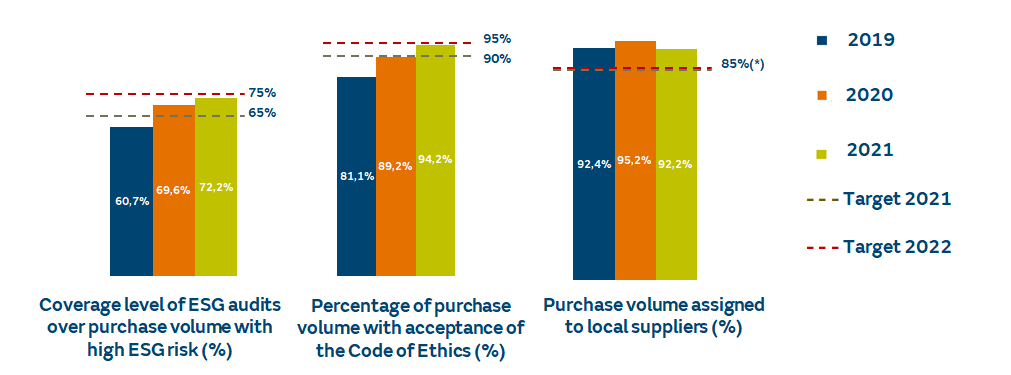Inicio / About us Naturgy / The Group / Our suppliers / Responsible supply chain
Responsible supply chain

We ensure the Group's sustainability principles of action in the purchasing and contracting processe
We promote responsible supply chain management, especially in environmental, social and good governance matters, guaranteeing, among others, ethical behavior and human and labor rights, transparency, full and fair opportunity, respect by the interests of the interested parties, respect for the principle of legality and international standards of behavior, focus on needs, integration and continuous improvement.
We establish objective and impartial mechanisms for the evaluation and selection of suppliers, ensuring that the supply chain complies with the principles established by the Supplier Code of Ethics, to which all suppliers must adhere and whose content emanates from the Naturgy Code of Ethics, from the Policy Human Rights, Health and Safety Policy, Anticorruption Policy, as well as internationally recognized principles of good governance.
Values we convey to our suppliers
We guarantee equality, independence and free competition.
We are committed to acting in an honest, upstanding, dignified and ethical manner.
We develop our business with a strategic time horizon that transcends immediate economic interests, thereby contributing to economic, environmental and social development.
We draw up plans, set objectives and take decisions based on the objectives sought by our vision, ensuring those targets are met.
Responsible action principles
Phases of the supply chain management process
Unified and universal contract conditions for the whole company.
A code of ethics applicable to procurement processes that is contained in the Supplier Code of Ethics and based on the principles of transparency, traceability, auditability and equality.
Classification of suppliers based on the procurement category they can supply and the level of risk implied by the supply. This process results in a supply tree that groups suitable suppliers together so they can take part in the various tenders acording to the risk levels involved.
Processes that require approval are determined by quality, health and safety, environmental, social and governance, and operational risk factors in order to guarantee that suppliers meet the requirements defined.
Monitoring and control of the documentation required of awarded suppliers in the development of services.
Performance tracking and analysis of successful bidders from various points of view in order to obtain an objective assessment that can be used in subsequent tender processes and supplier improvement and development actions.
To establish strategic relations capable of providing partnership opportunities and improvements in the products and services supplied.
Supply chain indicators
